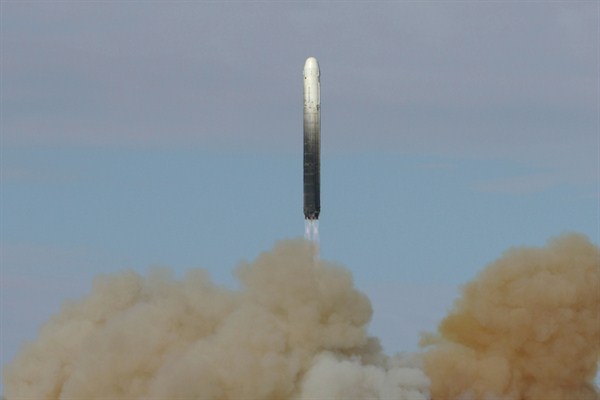Last week, the State Department officially reported that Russia had violated the 1987 Intermediate-Range Nuclear Forces (INF) Treaty when it tested cruise missiles starting in 2008. Republican lawmakers expressed immediate dismay, building on a steady drumbeat of criticism about the Obama administration’s response to Russian actions in recent months.
The report found Russia “in violation of its obligations” under the treaty to not test a ground-launched cruise missile with a maximum range of between 500 and 5,500 kilometers. A State Department spokesperson writes in an email to Trend Lines that “this is a serious matter which we have attempted to address with Russia for some time now,” but stresses that the treaty “serves the mutual security interests of the parties” as well as U.S. allies in Europe and Asia.
The INF treaty, uniquely among major arms control agreements, prohibits the world’s two most powerful nuclear powers from possessing an entire class of ballistic and cruise missiles. Notably, growing missile powers in Russia’s neighborhood such as China, India and Iran are not bound by similar restrictions and have been building large numbers of these systems in recent years.

